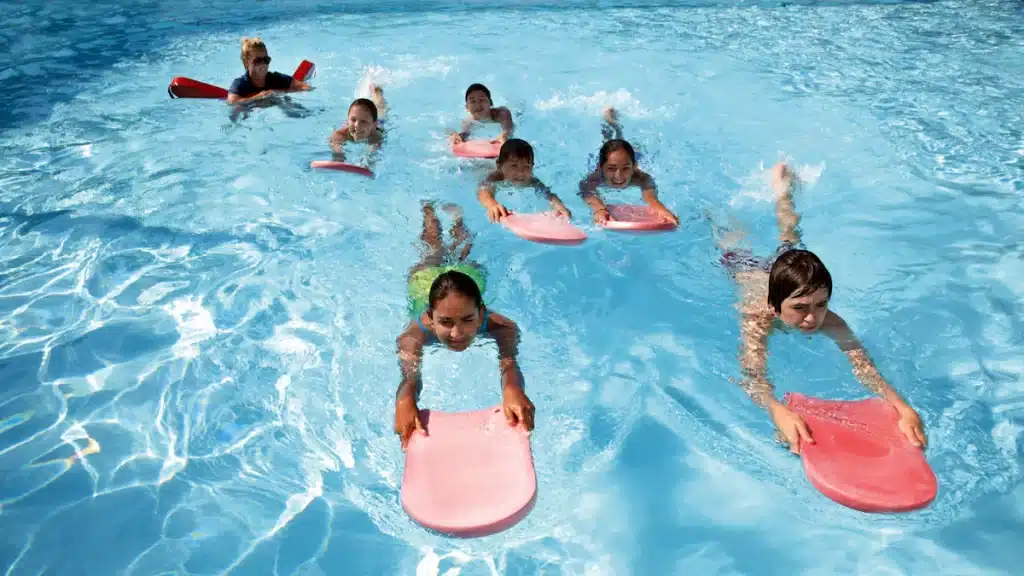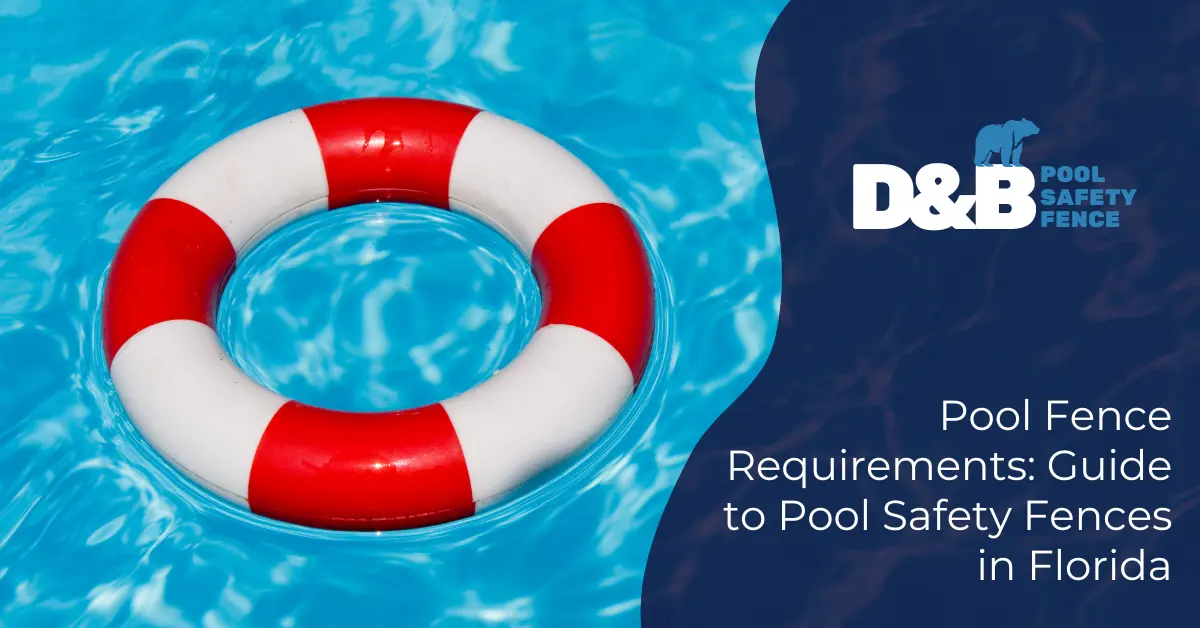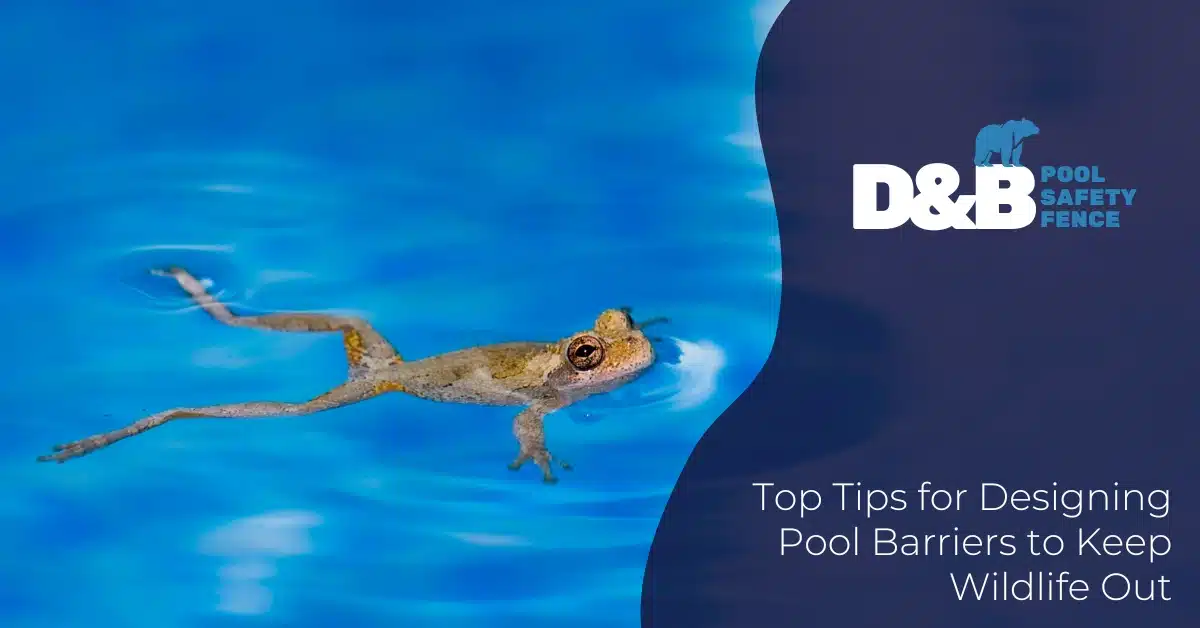Pool safety is very important, especially in Florida where many water accidents happen. Knowing the pool fence requirements helps keep everyone safe, especially kids. There are rules like having self-closing gates and barriers that can’t be climbed. It’s important to know these rules well. This guide explains why pool safety fences matter and what the Florida-specific regulations are. It helps people make smart choices about pool safety.
Importance of Swimming Safety and Pool Safety Fences

When thinking about pool safety, it’s important to know how serious it is. More than 4,500 people drowned each year from 2020-2022. The highest drowning rates are among kids aged one to four, adults over 65, and Indigenous, Alaska Native, and Black people. This shows the need for strong safety rules around pools.
Statistics on Pool Accidents
National statistics
- About 10 people die every day from accidental drowning in the U.S.
- Drowning is the third leading cause of accidental injury death worldwide, says the World Health Organization.
Florida-specific statistics
- In Florida, about 72% of children who drowned last year were three years old or younger.
- At least 97 kids drowned in 2023 in Florida. Most accidents happened in pools at their homes.
Common Causes of Pool Accidents
Lack of supervision
- One main reason for pool accidents is not having enough adult supervision.
- Without careful watching, especially around young kids, accidents can happen fast.
Inadequate safety measures
- Not having enough safety measures makes pool accidents more likely.
- It’s important to have strong barriers and plans to prevent bad outcomes.
Benefits of Pool Safety Fences
Preventing accidental drownings
- Pool fences help stop accidental drownings, especially for young kids.
- By blocking access to the pool area, these fences help prevent tragic events.
Legal compliance
- Following pool fence rules not only boosts safety but also meets legal requirements.
- Obeying regulations set by authorities helps make the pool area safer for everyone.
Florida Pool Fence Regulations and Requirements
To keep pools safe in Florida, you need to know the Florida pool fence regulations. These rules help stop accidents and save lives around pools.
Overview of Florida State Laws
The Florida Building Code requirements give clear rules for pool barriers. The code stresses having strong and secure barriers for safety. It tells how tall fences should be and what materials to use.
Specific height and material regulations
The Florida Residential Building Code Chapter 45 says pool fences must be at least four feet high with gaps no bigger than four inches. This makes it hard for kids to climb over. The fence materials must be strong and last a long time.
Local Regulations and Variations
Besides state laws, there are also county-specific regulations that may add more rules for pool fences. These extra rules aim to fix local safety issues and make sure all pools are safe.
City-specific regulations
Some cities in Florida have their own pool fence ordinances, which might include more safety steps or details than the state requires. It’s important for people to know these local laws to avoid breaking them.
Penalties for Non-Compliance
Not following pool fence regulations can lead to big problems, both legally and financially. Knowing the penalties is key for pool owners.
Fines and legal consequences
According to F.S. 515.29, people who don’t follow the pool barrier rules can get fines or face other legal actions. These penalties help stop people from ignoring pool safety.
Impact on insurance
Not following pool safety laws can also affect homeowners’ insurance coverage. Insurance companies look at how well you follow safety rules when deciding your coverage options and costs, so it’s important to follow the laws.
Types of Pool Safety Fences
Permanent Fencing
When choosing a pool fence, there are many permanent options. Common materials include wood, metal, and vinyl.
Materials (wood, metal, vinyl)
- Wood: Wood fences look natural and blend with outdoor areas. They are strong and can match different pool styles.
- Metal: Metal fences like aluminum or iron last long and need little care. They are secure and can be decorative.
- Vinyl: Vinyl fences are tough and don’t rust or fade. They are easy to clean and maintain.
Pros and cons
- Pros:
- Permanent fences protect all year round.
- They create a strong barrier that is hard to break through.
- Different materials fit various tastes and budgets.
- Cons:
- Installation costs differ by material type.
- Maintenance needs vary for wood, metal, and vinyl fences.
- Some designs might block the view of the pool area.
Removable Fences for Pools
Removable fences offer flexibility for pool safety. These often use mesh or plastic materials that can be put up or taken down easily.
Materials (mesh, plastic)
- Mesh: Mesh fences are cheap and versatile. The fabric is hard to climb, making it good for homes with kids or pets. It lets you see the pool while keeping it safe.
- Plastic: Plastic fences are light but strong. They are easy to set up and take down without losing safety features.
Pros and cons
- Pros:
- Removable fences can be used seasonally based on need.
- Mesh and plastic options cost less than permanent ones.
- Easy setup makes them great for temporary use or events.
- Cons:
- Durability depends on material quality used in the fence.
- Some may not be as secure as permanent ones.
- Regular checks ensure they work well over time.
Self-closing and Self-latching Gates
Self-closing gates keep the pool area safe while allowing easy access.
Importance and benefits
- Self-closing gates ensure security even if someone forgets to close it.
- Self-latching gates lock automatically when shut properly.
- These features prevent children or pets from entering unsupervised.
Installation tips
- Pick gates with adjustable closing speeds.
- Align gates correctly during setup to avoid gaps.
- Check hinges and latches regularly for wear.
Fence Installation and Maintenance Tips
Choosing a Professional Installer
Expert Pool Fence Specialists say it’s important to read pool fence contractor reviews. These reviews help you know how good, fast, and fair the companies are.
Credentials to look for:
- Certifications: Make sure the installer has the right pool safety and fencing certificates.
- Experience: Find installers with lots of experience in putting up pool fences.
- References: Ask for past clients’ contacts to check their happiness with the work.
Questions to ask:
- Timeline: Ask how long the installation will take.
- Materials: Inquire about the quality and strength of materials used.
- Warranty: Get clear details on warranties for both labor and materials.
Regular Pool Safety Fencing Maintenance Requirements
Keeping your pool fence in good shape is key for safety around your pool area.
Inspection checklist:
- Check for any loose screws or bolts that might weaken the fence.
- Look at the gate hinges often to ensure they work smoothly.
- Watch out for any signs of rust or corrosion, especially on metal fences.
Common issues and fixes:
- Sagging Panels: Use extra support brackets if panels sag.
- Gate Alignment: Adjust gate hinges as needed to keep them aligned properly.
- Cleaning: Clean mesh or plastic fences regularly with mild soap and water.
Following pool safety rules is very important to stop accidents. Florida has special rules to keep people from drowning and make pools safe, especially for kids. Knowing and using Florida’s pool safety fence laws helps keep pools safe. Florida’s many drowning cases show why pool safety is so important. Parents need to know key pool safety steps to keep their kids safe. Pool safety covers are needed to stop accidents with young kids near pools.






